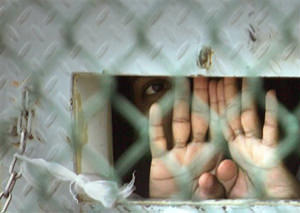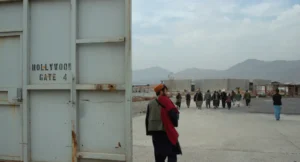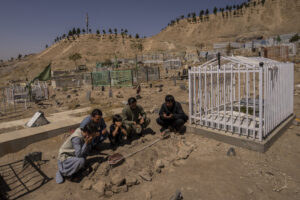How Little We Know About the Origins of 9/11
For a decade, the main questions about 9/11 have gone unanswered while the alleged perpetrators who survived the attacks have never been publicly cross-examined as to their methods and motives.For a decade, the main questions about 9/11 have gone unanswered.
For a decade, the main questions about 9/11 have gone unanswered while the alleged perpetrators who survived the attacks have never been publicly cross-examined as to their methods and motives. It is not conspiratorial but rather obviously plausible to suggest that they have been kept out of sight because legal due process, constitutionally guaranteed to even the most heinous of criminals, might provide information that our government would find embarrassing.
We remain in ignorance as to what drove religious zealots formerly allied with the United States to turn against us, and what was the role of our ally, Saudi Arabia, the country of origin for most of the hijackers and their financing. Why in the aftermath of the attack did the United States embrace Pakistan, which was one of only three governments (Saudi Arabia and the United Arab Emirates were the others) to diplomatically recognize the Taliban and which turned out to be harboring the fugitive Osama bin Laden? And why did we instead invade Iraq, a nation known to be engaged in a deadly war with bin Laden and his al-Qaida?
How little we know about the origins of the Sept. 11 attacks is laid out in the disclaimer on Page 146 of the official 9/11 presidential commission report. A box on that page states clearly that the conventional narrative of how those portentous events unfolded is based largely on the interrogation under torture of key witnesses who have never been permitted a single moment in a publicly observed court of law.
As the bipartisan commissioners ruefully conceded, their examination of the motives, financing and actions of the alleged 9/11 perpetrators had to “rely heavily on information from captured al Qaeda members” that the commissioners, despite having been granted the highest security clearance, were never allowed to seriously vet:
“We submitted questions for use in the interrogations but had no control over whether, when, or how questions of particular interest would be asked. Nor were we allowed to talk to the interrogators so that we could better judge the credibility of the detainees and clarify ambiguities in the reporting. We were told that our requests might disrupt the sensitive interrogation process.”
That sensitive interrogation process included the waterboarding of the key witnesses, led by alleged 9/11 mastermind Khalid Sheikh Mohammed, who was scheduled to go on public, civilian trial in Manhattan last spring, until the Obama administration caved in to hysterical Republican-led pressure and called off the trial.
The fear of a public trial is apparently that it will be an occasion to humanize the presumed perpetrators of barbaric acts, but by that standard no alleged murderer should ever be tried in civilian court. The counterargument is that we as a society have, from the drafting of our Constitution, been committed to due process of law. But an even more compelling objection to the present secrecy flows not from the inalienable rights of the accused to justice but rather from the need to fully inform the public as to the dangers faced by our society.
Major policy developments, including two undeclared wars, were conducted in the name of defeating the perpetrators of 9/11 without the public being made aware of the relevant facts. Surely a public trial would have revealed, to the deep embarrassment of the Bush administration, that there was no connection between the 9/11 hijackers and the government of Iraq that the United States overthrew.
At the very least, such testimony would have shed light on the cozy relationship between the U.S. government and the key leaders of al-Qaida, particularly the American-educated Mohammed, recruited by the CIA to join the fight against the Soviets in Afghanistan. It certainly could also have proved embarrassing to former Defense Secretary Robert Gates, who, during the Bush administration, opposed public trials and managed last March to get President Barack Obama to reverse his pledge of civilian trials. Gates boasted in his 1996 memoir of his long history of working with Islamic fundamentalists in Afghanistan, dating to his days in the Carter administration. As his book publisher bragged at the time, Gates exposed “Carter’s never-before revealed covert support to Afghan mujahedeen—six months before the Soviets invaded.”
Of course 9/11 changed everything; nations were invaded, trillions of dollars were wasted, hundreds of thousands of civilian and military lives were lost, torture became acceptable and the public has come to tolerate a daily governmental assault on privacy as normal. But for all of the high drama and cost of the U.S. response, when it comes to understanding the forces behind the attack, we still do not know what we are talking about.
Robert Scheer’s column has moved to Thursday. Sign up for our newsletter and get Scheer in your inbox.

|
Click here to check out Robert Scheer’s new book, |
Independent journalism is under threat and overshadowed by heavily funded mainstream media.
You can help level the playing field. Become a member.
Your tax-deductible contribution keeps us digging beneath the headlines to give you thought-provoking, investigative reporting and analysis that unearths what's really happening- without compromise.
Give today to support our courageous, independent journalists.








You need to be a supporter to comment.
There are currently no responses to this article.
Be the first to respond.